

Good news stories on transforming ASEAN and global agriculture
December 10, 2024

For over 30 years, the Crawford Fund has been arranging visits by Australian journalists to experience and report on agricultural research for development projects, as part of efforts to spread good news stories about the impact and mutual benefit of work to improve food and nutrition security.
The Crawford Fund welcomed the financial support of the DFAT Australia-ASEAN Council to arrange for three visits in 2024-25 focused on ‘Transforming ASEAN and Global Agriculture’ and one of those visits was recently completed.
The winner of the Crawford Fund Food Security Journalism Award, Pip Courtney, the well-known presenter of ABC TV Landline, travelled to the Philippines with our Director of Outreach, Cathy Reade and a Landline crew with cameraman Glen Armstrong and sound and photography specialist Cam Lang. While we were away, Pip was also awarded a 2024 Queensland Clarion Award for Rural Journalism.
The time in the Philippines included visits to the headquarters of the International Rice Research Institute (IRRI) to learn about work underway to improve the resilience of rice in a changing climate, and to produce more varieties of rice with greater nutritional value. We separately covered an Australian Centre for International Agricultural Research (ACIAR) supported One Health project, managed by a group at the University Philippines Los Banos (UPLB) that is working with farmers to improve effective diagnosis, surveillance and control measures of African Swine Fever (ASF).
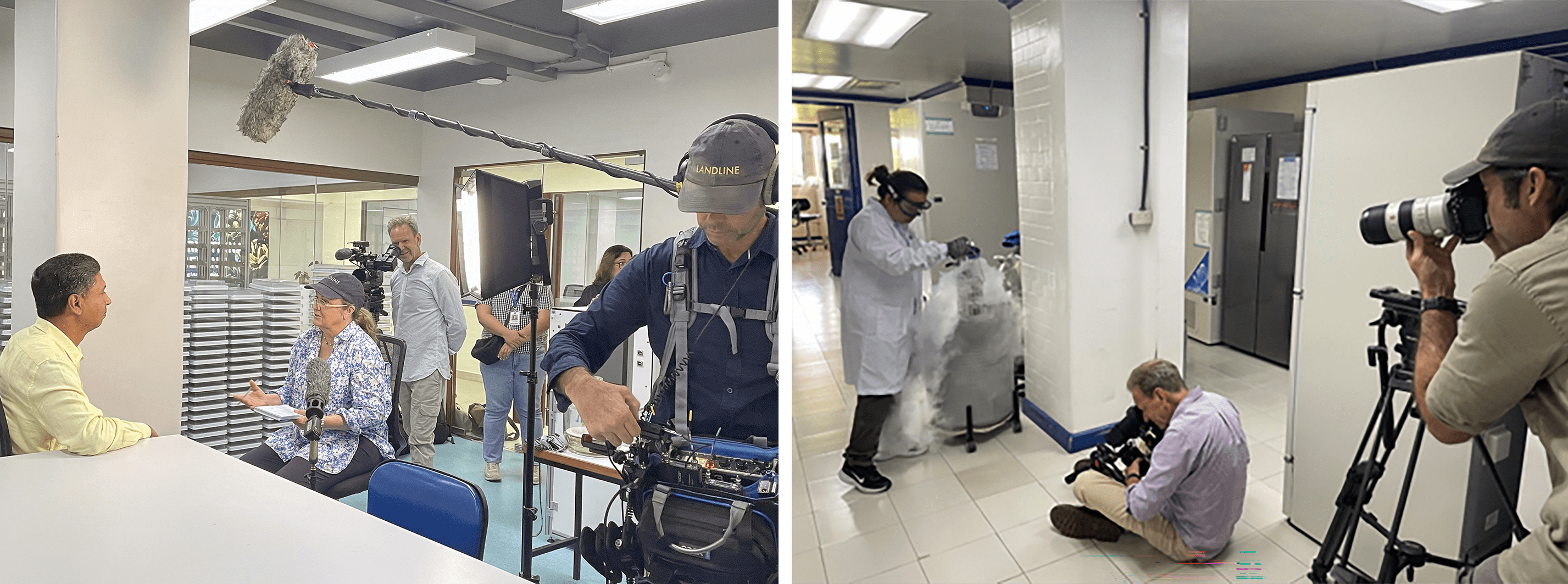
“Over the many years of organising the journalist visits, it never ceases to amaze me that the busy researchers and farmers are so happy to engage with us. We spoke to many researchers all over the IRRI campus, and the UPLB team working on the ACIAR One Health Project spent a very full day with us organising the right people to talk to at a wet market, at the university and at a smallholder pig farm,” said Cathy.
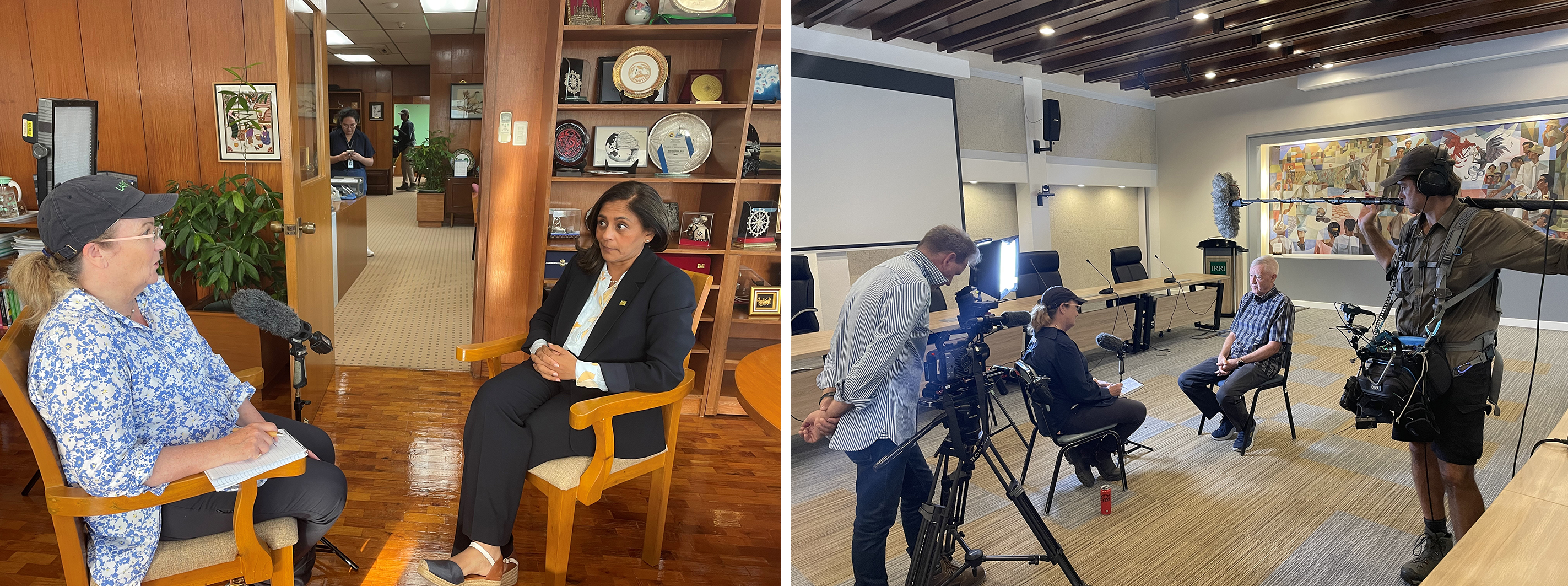
“The trip wouldn’t have been possible without the behind the scenes help from IRRI, UPLB and ACIAR in-country staff. Then there was all the work carried out by the ABC to get required approvals, visas and media accreditation. Their professionalism was a joy to watch, always happy to go the extra mile to get the footage needed, more often than not in difficult conditions. It really is extraordinary how everyone gets on board!” she said.
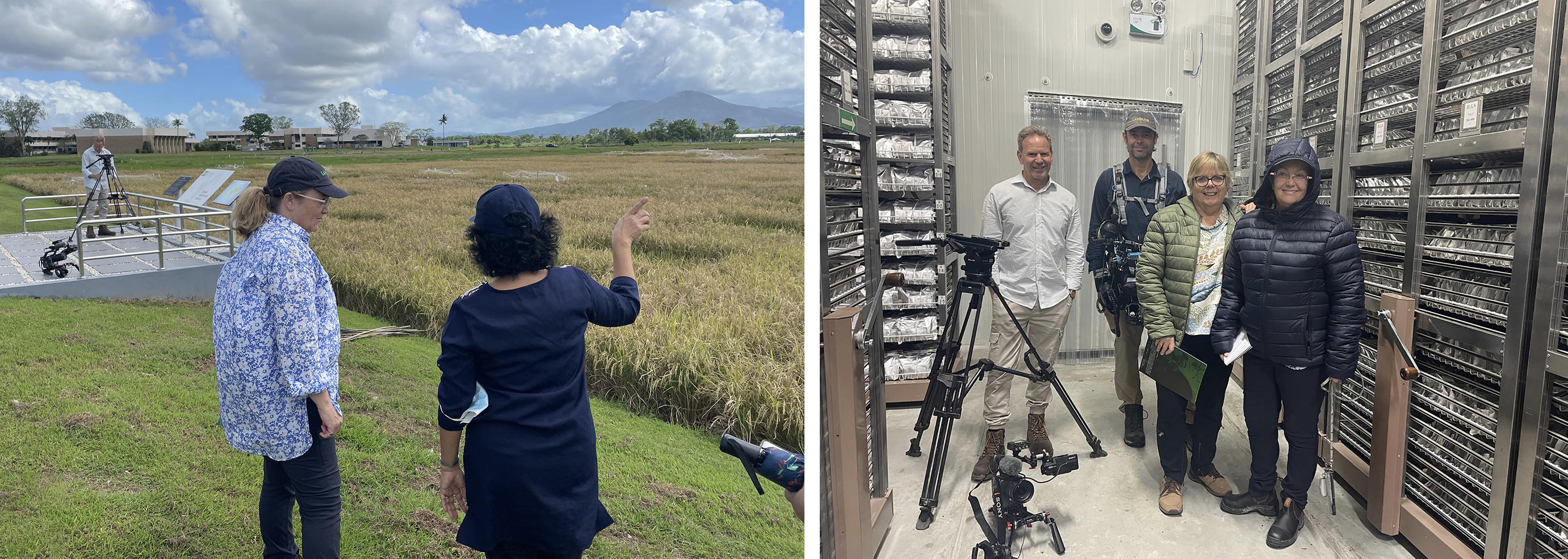
We had a series of daily posts across our social media platforms throughout the time in-country so check them out – Instagram, Facebook and X.
The IRRI visit included discussions with the organisation’s Director General, Dr Yvonne Pinto, for an overview of IRRI’s broad agenda; talking with World Food Prize winner, Dr Howdy Bouis, on biofortification and more nutritious rice being developed, and we had a special tour of the precious IRRI genebank and various labs.
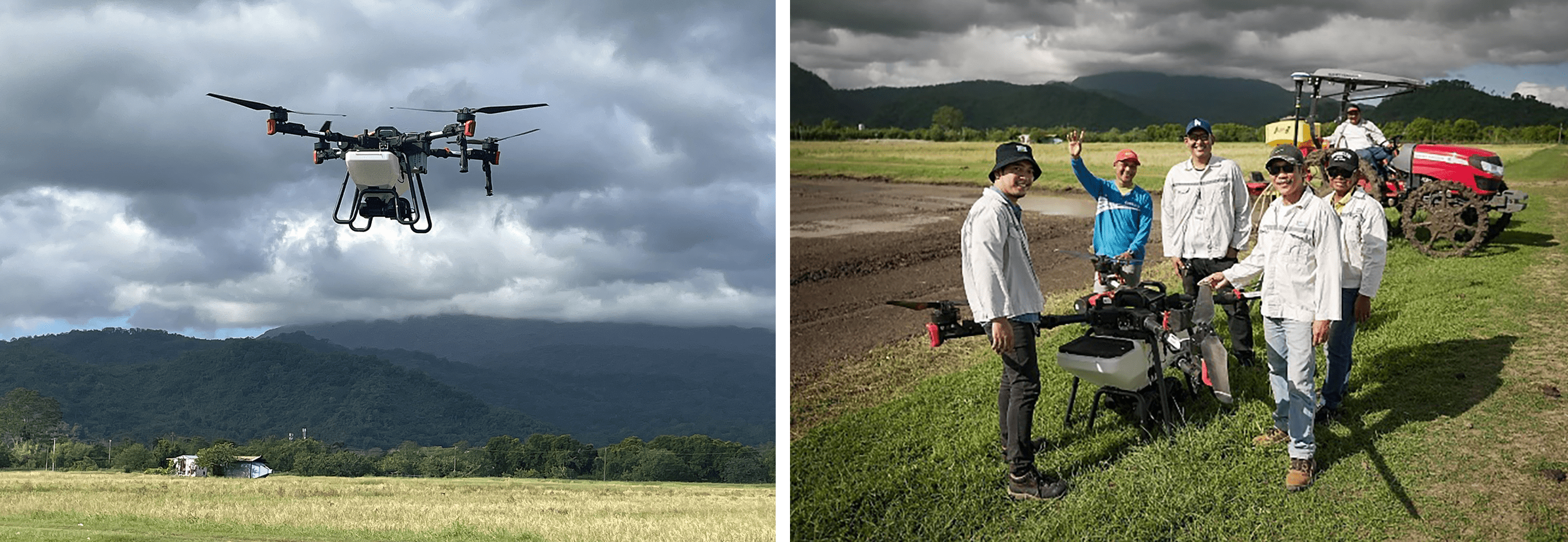
Australia is free of ASF, but if it reaches our shores, it has the potential to cause significant mortalities in all breeds of domestic, feral and pet pigs, with up to 100% case fatality. Philippines sadly does have ASF, but in the region we visited, we saw how hard researchers, municipal partners and farmers are working in the ACIAR project to ensure pigs and farmers’ livelihoods are safe. The day with the One Health group at UPLB started early at 5.45am to go to a wet market where the team spoke to the market administrator and vendors around the requirements for certification and transport of pigs and pork, given concerns with ASF. We then travelled to the university where we spoke with Dr. Rico C. Ancog, Dean and Professor at the School of Environmental Science and Management and Project Leader of ACIAR’s broader LIVEHEALTH Project covering ASF, Avian Influenza and Antimicrobial Resistance, and Cheryll T. Laviña-Gonzales from the municipal government on the challenges with ASF detection and monitoring. Dr. Yusuf A. Sucol, Project Leader of the ASF project, and his team then accompanied us to Mr Kuya Roger’s small pig farm to go through the process involved in farmer engagement, with in the field demonstrations of the very thorough ASF surveillance activities including sampling, detection, and testing. It was good to hear from the farmer and his daughter how engaged they are to ensure the ongoing safety and sustainability of their farm.
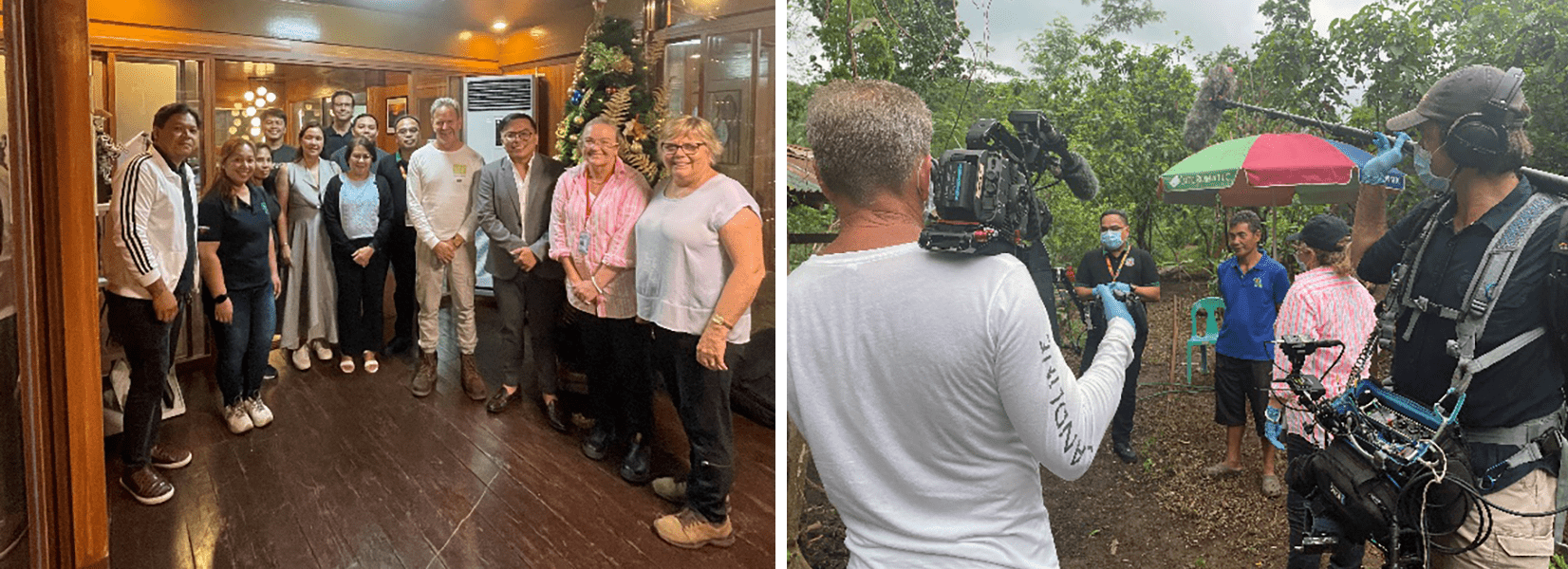
“All in all, another very busy, interesting and satisfying journalist visit. We are so looking forward to a wonderful segment on Landline in early 2025!” said Cathy.
Plans are now underway with further visits to Indonesia and Vietnam.




 0
0